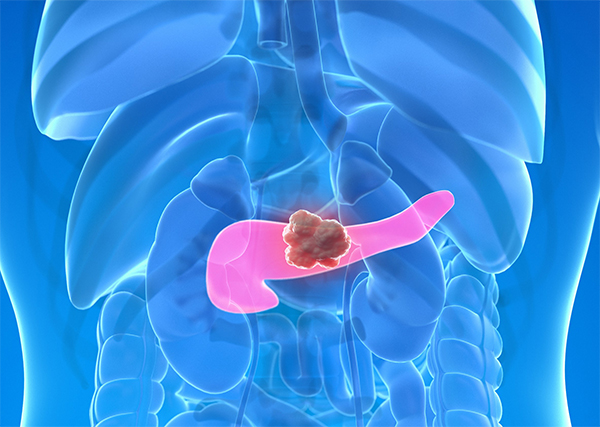Pancreatic cancer is a very poorly treatable cancer. The cure rate (five-year survival rate) for pancreatic cancer is only 13.9 percent. The exact cause of pancreatic cancer, which is most common in people in their 60s and 70s, is still unknown.
However, it is well known that smokers, people with diabetes or obesity, carriers of BRCA1 and BRCA2 mutations or PALB2 mutations, and people with FPC or Peutz-Jeghers syndrome have an increased risk of pancreatic cancer. Besides, there is one more chronic disease that increases the risk of pancreatic cancer: chronic pancreatitis.

"Chronic pancreatitis can be the cause of pancreatic cancer," said Dr. Shin Seok-pyo, a professor of gastroenterology at CHA University Bundang Medical Center, on the YouTube channel with the same name as the hospital. "Chronic pancreatitis is a disease in which the normal pancreas gradually loses its function and becomes hard due to repeated or chronic inflammation."
Chronic pancreatitis can be caused by many factors, including genetics, autoimmune diseases, and other substances that damage the pancreas, such as alcohol and tobacco. In addition, repeated episodes of acute pancreatitis can lead to chronic pancreatitis.
"Chronic pancreatitis increases the risk of pancreatic cancer, so patients with chronic pancreatitis should seek appropriate medical care," Professor Shin said.
However, the problem is that, like pancreatic cancer, chronic pancreatitis often has no early symptoms.
"Many people don't know they have chronic pancreatitis," Shin said. "As chronic pancreatitis progresses, the most important symptom is fatty stools. You can suspect chronic pancreatitis if you have fat in your stool."
Another symptom of chronic pancreatitis is worsening diabetes.
"The pancreas secretes hormones that regulate diabetes, and as the function of the pancreas declines, sugar control can worsen," Professor Shin said. "If you take an abdominal or chest CT of the pancreas and see calcifications in the pancreas, you can suspect chronic pancreatitis."

